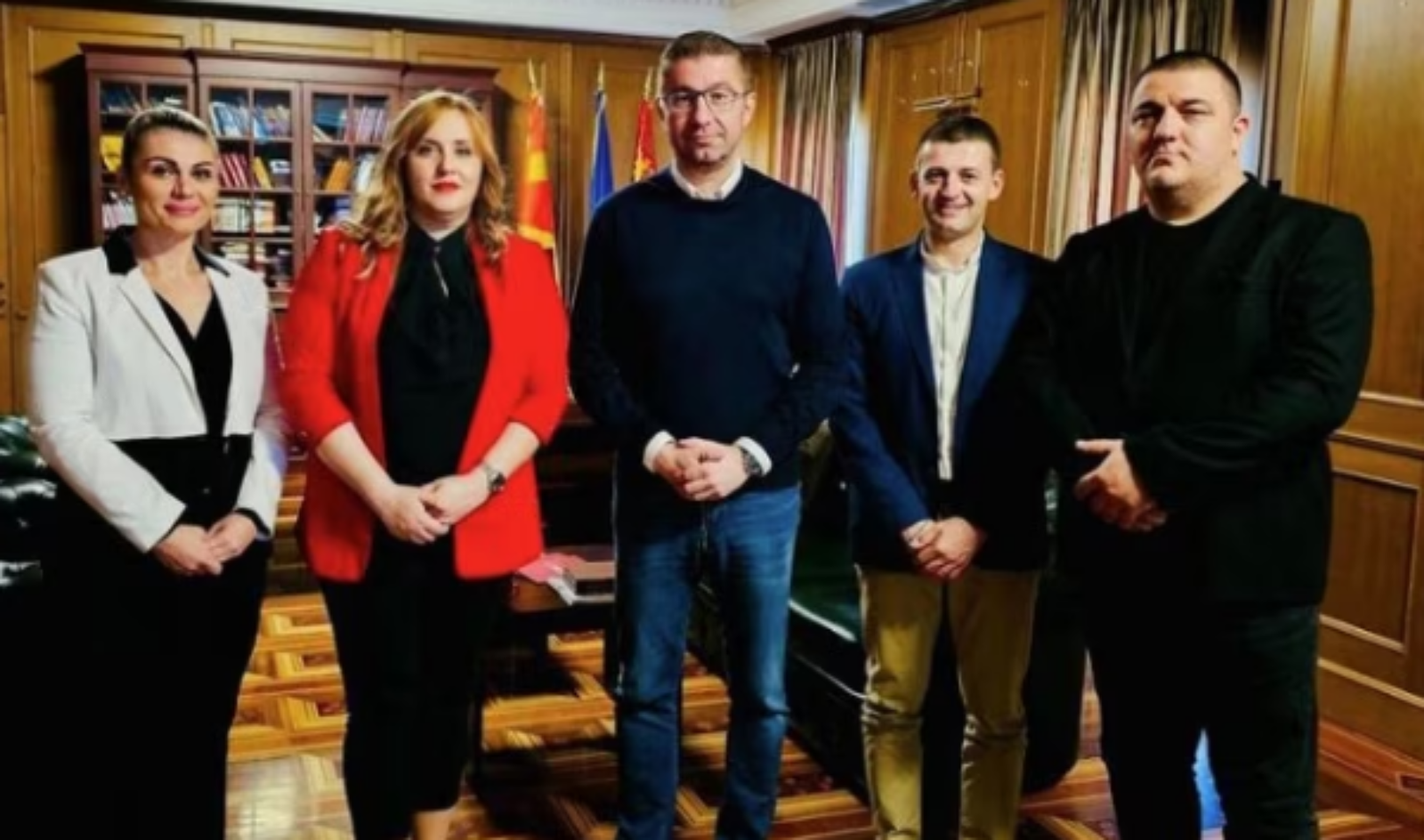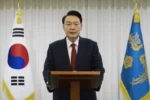The name of the largest ruling party in North Macedonia, VMRO-DPMNE, has been registered as an association (legal entity) in Serbia’s taxpayer registry for the past month.
The movement, named “VMRO-DPMNE Serbia,” was formed in Belgrade on August 25, and the registration application was submitted on September 9. The representative of this movement is Macedonian citizen Marjan Jovanoski, and its aim is “to promote and popularize Macedonian culture, history, and characteristics,” according to documents from the Serbian registry provided to Radio Free Europe (RFE).
There are similarities between the Serbian association and the party in North Macedonia, including a symbol described in the statutes of VMRO-DPMNE Serbia as “a stylized figure of a lion with a red crown on its head.”
Both VMRO-DPMNE and the founder of the association confirmed to RFE that the party was informed only prior to the formation of the Serbian movement. However, both parties stated that the party does not stand behind the association.
“As a political party, we were informed about this initiative, for which consent was given because we have always supported commitments to assist and advance the Macedonian communities abroad,” VMRO-DPMNE stated.
Jovanoski, the founder, said in an interview with RFE that party structures were aware that such an association would be established in Serbia but emphasized that the initiative for registration is an indigenous idea—personally his and that of a group of like-minded Macedonians living and working in Serbia.
“Since we wanted the name of the Movement to contain the name VMRO-DPMNE, we deemed it advisable to have an informal discussion with the leadership structures of the VMRO-DPMNE party from North Macedonia. We consulted about using the party’s name, VMRO-DPMNE, as part of the name of the movement in Serbia, for which we received consent, and there is no objection from them to use it as part of the name of the movement,” said Jovanoski.
Jovanoski is a former employee of the Ministry of Foreign Affairs of North Macedonia and has been the secretary of the National Council of the Macedonian National Minority in Serbia since April.
These councils have been established according to Serbian law on National Minority Councils. According to the Serbian Ministry of Human Rights and Minority Rights and Social Dialogue, these councils have been entrusted with public competencies to participate in decision-making on specific issues related to culture, education, information, and the use of languages to realize the collective rights of minorities.
Currently, there are 24 such councils, including the National Council of the Macedonian Minority. Since spring 2024, its chair has been Zorica Mitrović, who later appointed Jovanoski as secretary.
“We Are Open to Cooperation with Political Options”
Both, as representatives of the council, had a meeting with the leader of VMRO-DPMNE, Hristijan Mickoski, who is now the prime minister, one month before the parliamentary elections on May 8 in North Macedonia.
“At the meeting with the chairman of VMRO-DPMNE and the future Prime Minister of the Government of North Macedonia, there was an agreement for cooperation in many areas after the elections and strong support for Macedonians in Serbia and the National Council,” reads a Facebook post from April 10 on the page of the National Council of Macedonians in the Republic of Serbia.
Jovanoski, who later formed the VMRO-DPMNE Serbia movement, said that as a movement they are open to cooperation with all political options in both countries.
“We remain open to cooperation with all significant cultural, economic, political, and civic institutions and organizations in North Macedonia and Serbia. All friendly entities or individuals in Serbia and Macedonia who can help achieve our goals are welcome to join us and support our aim to improve the position of the Macedonian community in Serbia,” he told RFE.
A Wide Range of Goals for VMRO-DPMNE Serbia
The movement is registered at an address in New Belgrade. It has its own statutes stating that its governing bodies are the assembly, board of directors, and president.
“The goals are outlined in our statutes, but it can be said that our aim is to promote, educate, and preserve the identity, customs, and linguistic, cultural, and national traditions of the Macedonians in Serbia,” Jovanoski emphasized.
The founders have not yet decided what the initial activities of this movement in Serbia will be.
“We waited for the registration to conclude to continue preparing the projects and plans we intend to implement in the future,” Jovanoski stated, emphasizing that the movement was officially registered less than a month ago.
The statutes outline goals such as respecting human rights, preserving Macedonian traditions, caring for Macedonian culture in Serbia, and advancing Macedonian-Serbian relations, among others.
However, the spectrum of goals is broad, so in addition to those related to Macedonian tradition, others include: “harmonizing and preserving sovereignty, rule of law, and the state of law,” “fighting corruption and organized crime,” “establishing accountability for public officials,” “regulating the non-governmental sector,” “eradicating poverty,” “media freedom and independence,” “promoting public health,” and “environmental protection.”
The Founder Was a Macedonian Diplomat in Belgrade
Before moving to live in Belgrade, the representative of “VMRO-DPMNE Serbia” had contacts with the local Macedonian community as part of his career in the Ministry of Foreign Affairs.
His professional biography on LinkedIn states that he started working in the Ministry of Foreign Affairs 18 years ago in the office of then-Minister Antonio Milošoski. According to the description of the tasks he has listed on this social network, he was responsible for the minister’s agenda, organizing trips, bilateral relations with neighbors, etc.
Former Minister Milošoski, who is now a member of parliament and a member of the Executive Board of VMRO-DPMNE, told RFE that he has no information about the movement in Serbia carrying his party’s name or whether the party stands behind it.
Milošoski was the head of diplomacy from August 2006 until the end of July 2011. Immediately after leaving the Ministry of Foreign Affairs, Jovanoski was in a diplomatic mission at the Embassy of North Macedonia in Belgrade, where, according to his biography, the engagement lasted about three years. He was part of the embassy from 2017 to 2020, after which he left the Ministry of Foreign Affairs.
The VMRO-DPMNE party returned to power in North Macedonia after about seven years in opposition, following the elections held on May 8 of this year. It has a close cooperation and is a sister party to the Serbian Progressive Party (SNS), of which Serbian President Aleksandar Vučić is also a member.







